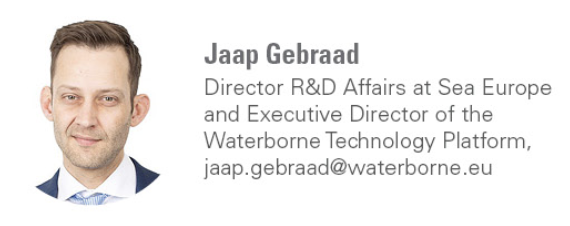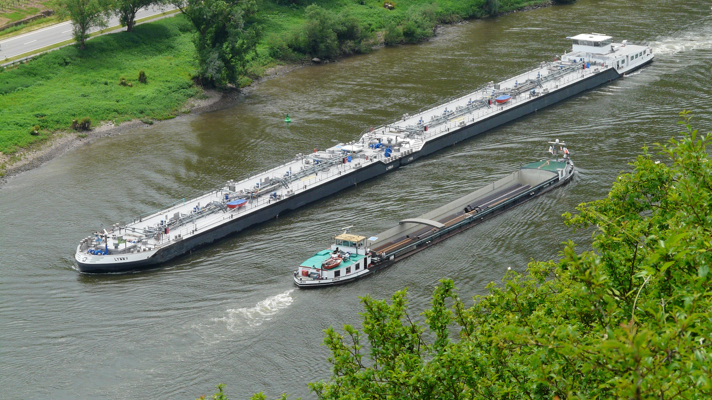The waterborne transport sector is on the radar of the European institutions. In June, the European Council approved the Council conclusions entitled “EU Waterborne Transport Sector – Future outlook: Towards a carbon-neutral, zero accidents, automated and competitive EU Waterborne Transport Sector”. They give direction to Europe maintaining its lead in the worldwide transition it faces.
The conclusions are politically very relevant as they clearly indicate the views from EU member states towards the European Commission (policies) on the future of waterborne transport. They also underline the strategic importance of the European waterborne transport sector and the need for enhanced research, development and innovation to achieve the set objectives.
In addition, these conclusions are in line with a number of overarching policy objectives, like the European Green Deal and “a Europe fit for the digital age”. Interestingly, compared with earlier conclusions aimed either at maritime shipping or inland waterway transport, the terminology “Waterborne” has become a new brand.
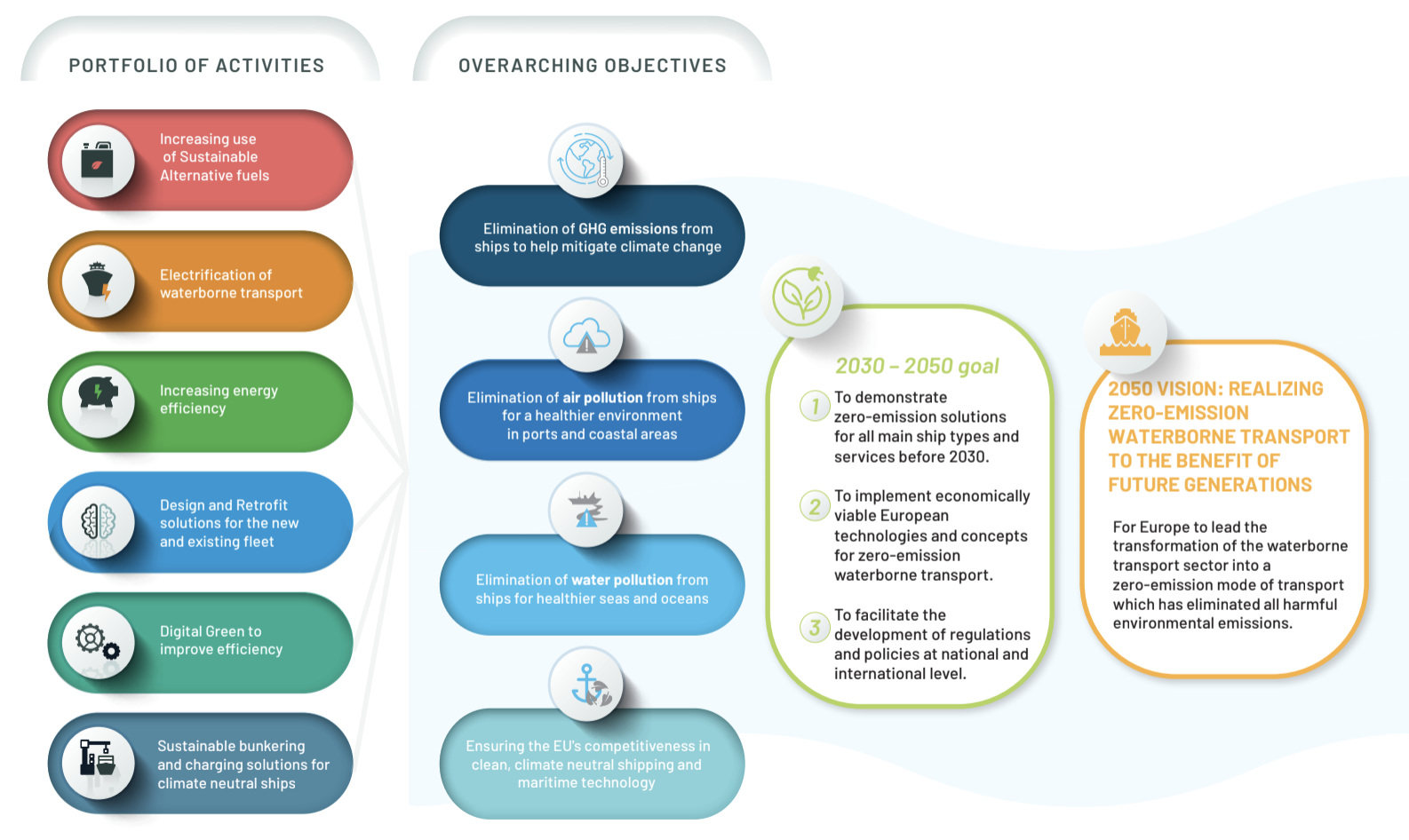
The framework for maritime research, development and innovation in the EU.
Leading the worldwide transition
Whilst these Council conclusions focused on waterborne transport (both maritime shipping and inland waterway transport), they pave the way for the role of the European maritime technology sector towards achieving the objectives set. The broader waterborne cluster has all the elements needed to lead the worldwide transition towards a zero-emission, digital, zero-accident and competitive sector.
However, measures are needed to ensure that Europe is able to maintain this role, in a complicated and unfair international level playing field. This was highlighted earlier in 2020 in a written answer to a parliamentary question, where the EU Commissioner for Internal Market acknowledged that maritime technology and shipbuilding are among Europe’s most strategic industries.
The waterborne cluster has all the elements needed to lead the worldwide transition
Commissioner Breton stated his support for the maritime technology industry as a relevant source of employment and growth and recognised the need for the EU to preserve and strengthen the EU’s global leadership in green shipping technologies.
Looking back, the aforementioned developments are unique. For the first time ever, not only the European Commission, but equally important the European Council as well as members of the European Parliament are asking for specific attention and dedicated measures to enhance Europe’s global leadership in waterborne transport and maritime technology.
Among other things, this is the result of joint efforts by the European waterborne transport and maritime technology sector in approaching the three main institutions of the European Union as well as the respective ministries at a national level to secure proper policies and instruments for this strategic sector for Europe and the Netherlands.
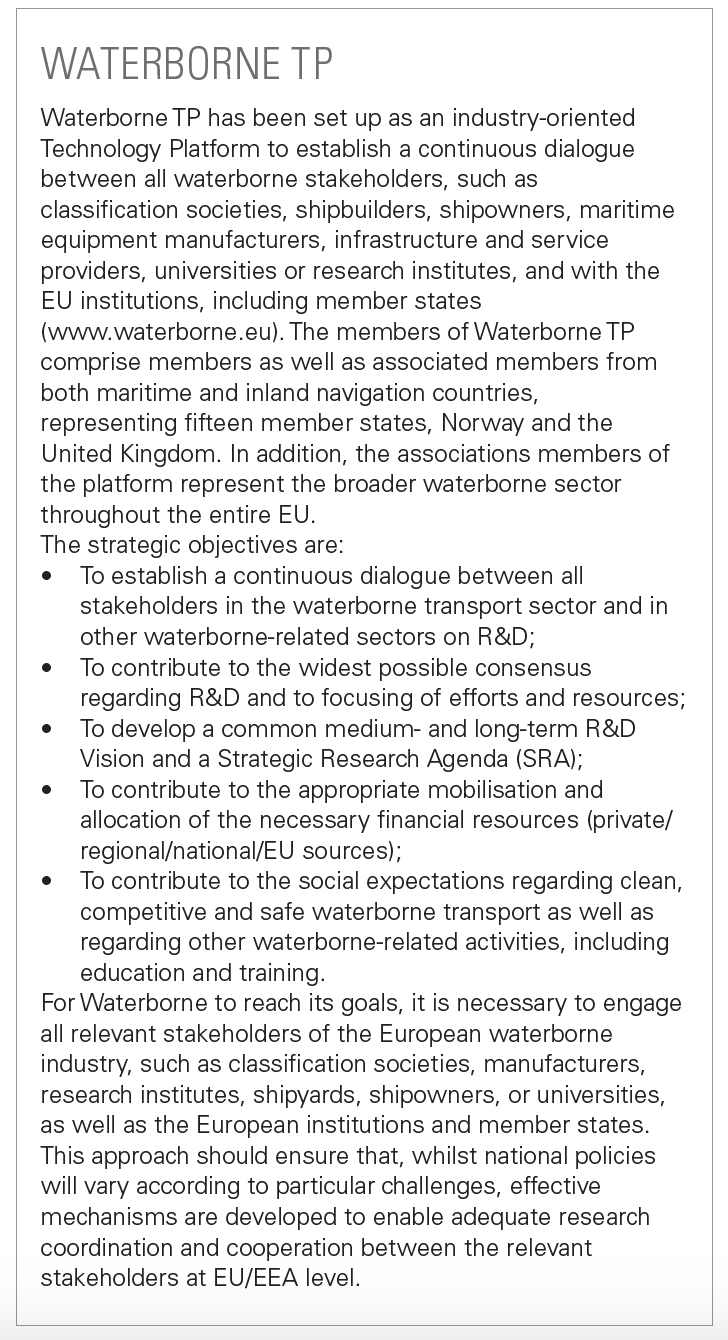
Green Deal
In addition, the European Green Deal, proposed by the new European Commission in December 2019, paves the way for the further development of the sector. The European Green Deal is a growth strategy to overcome climate change and environmental degradation, which are an existential threat to Europe and the world. To overcome these challenges, the European Commission proposed a new growth strategy that will transform the Union into a modern, resource-efficient and competitive economy. As part of the European Green Deal, a ninety per cent reduction in transport emissions is needed by 2050.
In addition, as a matter of priority, a substantial part of the 75 per cent of inland freight carried today by road should shift onto rail and waterborne transport. Finally, the European Commission is aiming to reduce the EU’s greenhouse gas emissions by 2030 to at least fifty per cent and towards 55 per cent compared with 1990 levels in a responsible way.
Dedicated European R&D partnership
One of the key elements to be able to reach the objectives of the European Green Deal, is a coordinated approach regarding research, development and innovation. After an intense lobbying campaign by the European waterborne transport stakeholders, the European Commission and the EU member states selected a co-programmed partnership on zero-emission waterborne transport in the framework of Horizon Europe as one of the candidate partnerships.
Horizon Europe is the European research and innovation programme to succeed Horizon 2020 on 1 January 2021. Co-programmed partnerships are partnerships between the European Commission and private and/or public partners. They are based on memoranda of understanding and/or contractual arrangements towards achieving a common objective.
Maritime technology and shipbuilding are among Europe’s most strategic industries
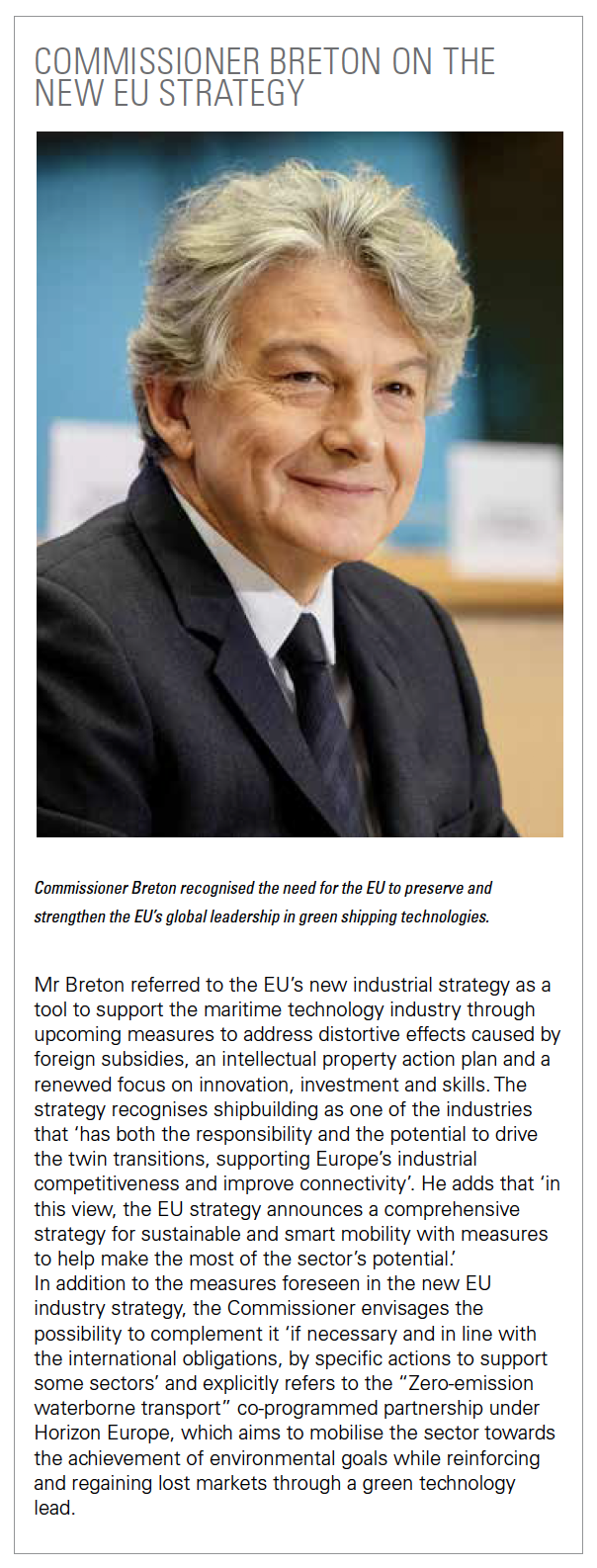 For the first time in history, the European waterborne transport sector will have a dedicated European R&D partnership, starting in 2021. This partnership will develop and demonstrate disruptive solutions aimed at the elimination of GHG emissions, as well as air pollution and pollution to water (including underwater noise). These solutions should be applicable for both newbuild and existing main maritime and inland navigation ship types and services.
For the first time in history, the European waterborne transport sector will have a dedicated European R&D partnership, starting in 2021. This partnership will develop and demonstrate disruptive solutions aimed at the elimination of GHG emissions, as well as air pollution and pollution to water (including underwater noise). These solutions should be applicable for both newbuild and existing main maritime and inland navigation ship types and services.
Furthermore, the partnership will develop solutions that will facilitate the envisaged modal shift of cargo from road to waterborne transport. The partnership aims to create the foundations to transform waterborne transport into a net zero-emission mode of transport.
It will contribute to maintaining and reinforcing Europe’s global leadership in innovative, green waterborne transport solutions. The partnership’s objective is to ‘provide and demonstrate zero-emission solutions for all main ship types and services before 2030, which will enable zero-emission waterborne transport before 2050.’
In order to facilitate zero-emission waterborne transport, the partnership will contribute to the development of regulations and policies at both a national and international level including the development of standards to enable the implementation of technological solutions for zero-emission waterborne transport by 2030 at the latest. A first draft of the “Strategic research and innovation agenda” of the partnership has been developed, paving the way for calls for proposals in the framework of Horizon Europe for 2021 and 2022.
This important initiative is a result of cooperation between a large number of stakeholders of the European waterborne transport sector. It is an example of how cooperation can help us in reaching joint objectives, and reaching the objectives of the European Green Deal will help all of us at the same time to increase our competitiveness, whilst realising zero-emission waterborne transport to the benefit of future generations.
This article appeared in SWZ|Maritime’s December 2020 Europe special. It was written by Jaap Gebraad.
